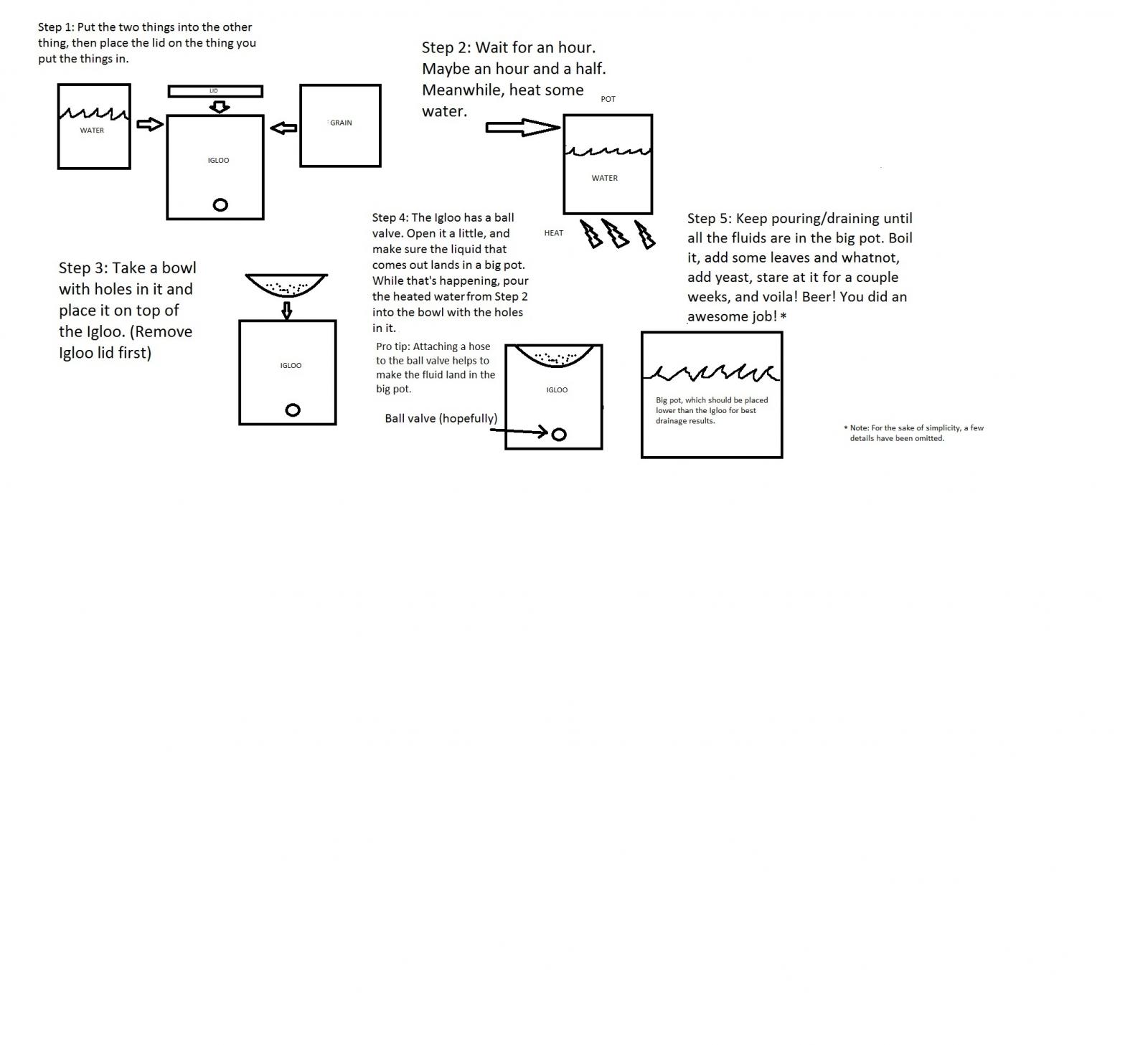Murphys_Law
Well-Known Member
I went to BIAB from partial mash for a few reasons:
1) I keep my gear in a small closet in my basement and haul it out each brew day so storage, set-up, etc was/is a big consideration.
2) general ease and simplicity.
3) Thought it was a good bridge should I want to go to a 3V system and I'm really only out of a few $$'s on the bag. I've since decided to stick with BIAB so I built a pulley stand out of 1/2 black iron pipe bought at Home Depot (think I paid around $60)
I haven't worried about sparge. The draining water from the hanging bag carries sugars out of the grain and into my kettle and I can easily hold back a gallon of water and rinse my grain bag if I want. If I'm worried about my numbers (efficiency) then I can add another pound of grain. That's what... under $2?
Either way you'll make good beer if you pay attention to your process from start to finish.
1) I keep my gear in a small closet in my basement and haul it out each brew day so storage, set-up, etc was/is a big consideration.
2) general ease and simplicity.
3) Thought it was a good bridge should I want to go to a 3V system and I'm really only out of a few $$'s on the bag. I've since decided to stick with BIAB so I built a pulley stand out of 1/2 black iron pipe bought at Home Depot (think I paid around $60)
I haven't worried about sparge. The draining water from the hanging bag carries sugars out of the grain and into my kettle and I can easily hold back a gallon of water and rinse my grain bag if I want. If I'm worried about my numbers (efficiency) then I can add another pound of grain. That's what... under $2?
Either way you'll make good beer if you pay attention to your process from start to finish.






![Craft A Brew - Safale BE-256 Yeast - Fermentis - Belgian Ale Dry Yeast - For Belgian & Strong Ales - Ingredients for Home Brewing - Beer Making Supplies - [3 Pack]](https://m.media-amazon.com/images/I/51bcKEwQmWL._SL500_.jpg)




















































